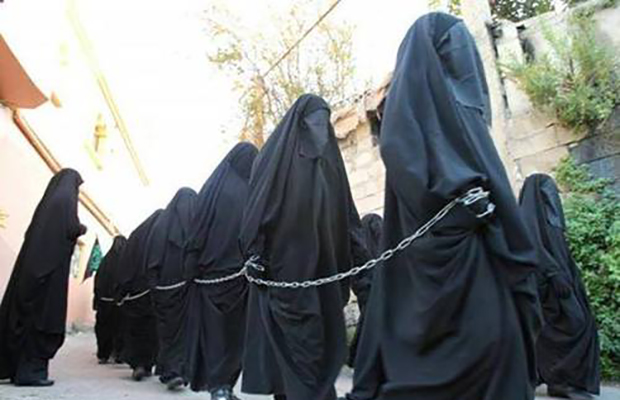
More than two thousands Ezidi women have been kidnapped after the attack on Shengal (Sinjar) by the ISIS terrorists.
On August 29th, Xeyri Bozani director-general of Ezidi affairs at the KRG ministry of religious affairs, in a press conference in the ministry of religious affairs said that the number of those women who have been kidnapped are exceeding two thousands women.
Xeyri Bozani said: “since the day one we organized a group in order to documenting the tragedy of Shengal which now 38 people are working in it”.
He added: “we made 5 forms, one for missing people, one for martyrs, one for those who died, one for those who kidnapped and one from also for refugees which include all information which facilitate the census for any purpose and at any time.
He emphasized: “the number of those women who have been kidnapped by the ISIS terrorists after the attack on Shengal has exceeded two thousands women and yesterday (August 28th) four kidnapped girls who managed to run from ISIS and returned to Hewler (Erbil) when we ask them how many have been kidnapped, they only said too many.”
ISIS selling Ezidi Kurdish women in Syria
Several dozen Ezidi women abducted by ISIS have either been sold or handed out to members of the Sunni extremist group, according to an organization that monitors the crisis, CNN reported.
In the past few weeks, ISIS has “distributed” to its rank and file about 300 female members of the persecuted religious minority, says the Syrian Observatory for Human Rights, a UK-based monitoring group aligned with the opposition in Syria.
Those women were initially kidnapped in Iraq before being taken to Syria.
In ISIS’ eyes, the girls and women are “captives of the spoils of war with the infidels,” the Syria monitors said, claiming that some had converted to Islam so ISIS terrorists can marry them.
SOHR (Syrian Observatory for Human Rights) says it could confirm at least 27 cases in which women were “sold and married” for about $1,000 each to ISIS militants in Aleppo and Raqqa suburbs and Al-Hassakah.
ISIS, which calls itself the Islamic State, was previously referred to as the Islamic State in Iraq and Syria.
In August, it captured Ezidi villages in the area of Mount Shengal, prompting an enormous outpouring of the minority amid reports of executions and the abduction of women.
The United Nations High Commissioner for Refugees (UNHCR) reported that some of the victims reportedly have been forced to convert to Islam and have been trafficked by the terrorist groups inside and outside of Iraq.
A few weeks ago Viyan Dakhil, a Ezidi MP in Iraq, broke down in tears, as she called on the parliament and the international community to “Save us! Save us!” from Islamic State.
The bulk of the Ezidi population live in southern Kurdistan, where they number about 500,000. The two biggest communities are in Shekhan, northeast of Mosul, and in Shengal, near the Rojava border and around 80 kilometres from Mosul. Ezidis in Rojava live primarily in two communities, one in the Cizire area and the other in the Kurd-Dagh (Kurd Mountains, Kurdish: Çiyayê Kurmênc). There may be between about 12,000 and 15,000 Ezidi in Rojava today. Ezidis are ethnic Kurds with the Ezidi belief system. Outside of Shengal, the Ezidis are concentrated in areas north of Mosul, and in the Kurdish-controlled province of Dohuk. For Ezidis, the land holds deep religious significance; adherents from all over the world—remnant communities exist in northern Kurdistan, Germany, and elsewhere—make pilgrimages to the holy Kurdish city of Lalesh.
Rojhelat.info